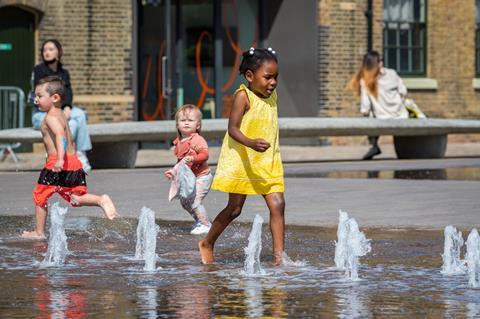LUHC Committee calls for evidence as part of inquiry into young people and built environment

The Levelling Up, Housing, and Communities Committee (LUHC) has announced an aimed at exploring the impact of the built environment on children and young people’s health and well-being across England.
The committee is chaired by Clive Betts, Labour MP for Sheffield South East, and comprises members from across the political spectrum.
The inquiry intends to investigate how improved planning, construction, and urban design in England could positively influence the health and well-being of young people, benefiting not only them but also the wider population.
It will examine how children and young people engage with public spaces, navigate their neighbourhoods, and actively participate in their communities. It also seeks to understand the potential role of government in optimising the built environment.
The LUHC Committee is inviting submissions from the public, as well as asking for responses to specific queries outlined in the call for evidence. The submissions, to be sent in by Tuesday 2 January 2024, should adhere to the inquiry’s focal points, which encompass:
The experiences of children and young people of their built environment
- How do children and young people experience outdoor spaces in towns, cities and rural areas across the country? For example, their streets, estates, villages, neighbourhoods and parks?
- How do these experiences vary across income, race, gender, age?
- How easily can children and young people travel to outdoor spaces and schools? How has this changed over the years?
The planning system
- How well are children and young people’s needs currently met by the planning process in terms of policy and guidance?
- How are children and young people’s views and voices heard, considered and acted upon in the planning system if at all?
Best practice and evaluation
- Where are the examples of policy and good practice that are improving children and young people’s experiences in the built environment, either directly or indirectly, in the UK or internationally?
- How are these outcomes measured? For example, through economic or health and wellbeing indicators?
Cross Government working
- How does the relationship of children and young people with the built environment overlap with policy areas beyond the work of DLUHC, such as public health, transport, policing and net zero?
- Are government departments working together to address children and young people’s needs in this respect?
Submissions should ideally not exceed 3,000 words and must align with the outlined terms of reference. The LUHC Committee aims to gather a diverse range of perspectives to inform its inquiry.
Postscript
Further details on how to make a submission to the inquiry can be found .


























No comments yet